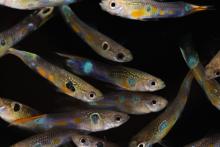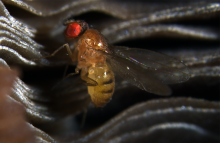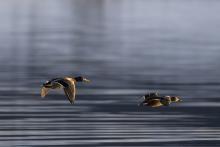Not enough current research on marine ecosystems focuses on species' long-term adaptation to ocean acidification, creating a murky picture of our oceans' future, according to an international study led by a UBC zoologist.
"We can't measure evolutionary responses in all organisms, so we need to choose carefully to get the most bang for our buck," says UBC post-doctoral research fellow Jennifer Sunday, who conducted the study with experts from Germany, Australia, the United States, Great Britain and Sweden. "Species of ecological and economic importance, or species that will allow us to make useful generalizations, should be studied so we can project changes in our ocean ecosystems."
The paper, published this week in Trends in Ecology and Evolution, reviews 18 studies on ocean acidification from 2004 to 2013. It summarizes approaches that researchers can use to increase the evolutionary focus of their work, potentially offering a clearer snapshot of the health of our future oceans.
While most studies of ocean acidification’s impact do not take into account the potential for evolutionary responses, Sunday’s team sought to highlight the small but growing list of studies that do. They found researchers have used two general approaches: either raising organisms for multiple generations to recreate evolution in the laboratory, or measuring genetic variation in natural populations.
“Both approaches have demonstrated some capacity for evolution, and now we must focus on the details of that process,” says Sunday. “Research must turn to actually estimating rates of evolutionary change in different species.”
Future work should zero in on ecologically important species, find models that represent taxonomic or functional groups, and consider interdependencies within the food web, according to the experts. They also advise researchers to incorporate investigations of responses to additional stressors, such as rising water temperatures, to studies.
The study can be found at: http://www.cell.com/trends/ecology-evolution/abstract/S0169-5347%2813%2…
Musqueam First Nation land acknowledegement
We honour xwməθkwəy̓ əm (Musqueam) on whose ancestral, unceded territory UBC Vancouver is situated. UBC Science is committed to building meaningful relationships with Indigenous peoples so we can advance Reconciliation and ensure traditional ways of knowing enrich our teaching and research.
Learn more: Musqueam First Nation
Faculty of Science
Office of the Dean, Earth Sciences Building2178–2207 Main Mall
Vancouver, BC Canada
V6T 1Z4


